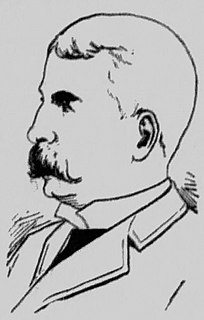A Quote by Napoleon Bonaparte
A well-composed song strikes the mind and softens the feelings, and produces a greater effect than a moral work, which convinces our reason, but does not warm our feelings, nor effect the slightest alteration in our habits
Related Quotes
Our character is composed of our ideas and our feelings: and, since it has been proved that we give ourselves neither feelings nor ideas, our character does not depend on us. If it did depend on us, there is nobody who would not be perfect. If one does not reflect, one thinks oneself master of everything; but when one does reflect, one realizes that one is master of nothing
In the new alchemy, we have a similar kind of way of thinking. Our internal space includes our intuitions, our thoughts, our senses and our feelings, and from these we construct or build a picture of the outside world. From intuition and thought, we construct time. We also construct space from thought and our sensations. From our senses and our feelings, we experience energy, and from our intuitions and our feelings, we experience motion.
Faith and feelings are the warm marrow of evil. Unlike reason, faith and feelings provide no boundary to limit any delusion, any whim. They are virulent poison, giving the numbing illusion of moral sanction to every depravity ever hatched. Faith and feelings are the darkness to reason’s light. Reason is the very substance of truth itself. The glory that is life is wholly embraced through reason. In rejecting it, in rejecting reason, one embraces death.
Music may appeal to crude and coarse feelings or to refined and noble ones; and in so far as it does the latter it awakens the higher nature and works an effect, though but a transitory effect, of a beneficial kind. But the primary purpose of music is neither instruction nor culture but pleasure; and this is an all-sufficient purpose.
Education doesn’t make you happy. Nor does freedom. We don’t become happy just because we’re free – if we are. Or because we’ve been educated – if we have. But because education may be the means by which we realize we are happy. It opens our eyes, our ears, tells us where delights are lurking, convinces us that there is only one freedom of any importance whatsoever, that of the mind, and gives us the assurance – the confidence – to walk the path our mind, our educated mind, offers.
...the gross national product does not allow for the health of our children, the quality of their education or the joy of their play. It does not include the beauty of our poetry or the strength of our marriages, the intelligence of our public debate or the integrity of our public officials. It measures neither our wit nor our courage, neither our wisdom nor our learning, neither our compassion nor our devotion to our country, it measures everything in short, except that which makes life worthwhile.
Were it possible for us to see further than our knowledge reaches, and yet a little way beyond the outworks of our divinings, perhaps we would endure our sadnesses with greater confidence than our joys. For they are the moments when something new has entered into us, something unknown; our feelings grow mute in shy perplexity, everything in us withdraws, a stillness comes, and the new, which no one knows, stands in the midst of it and is silent.












































